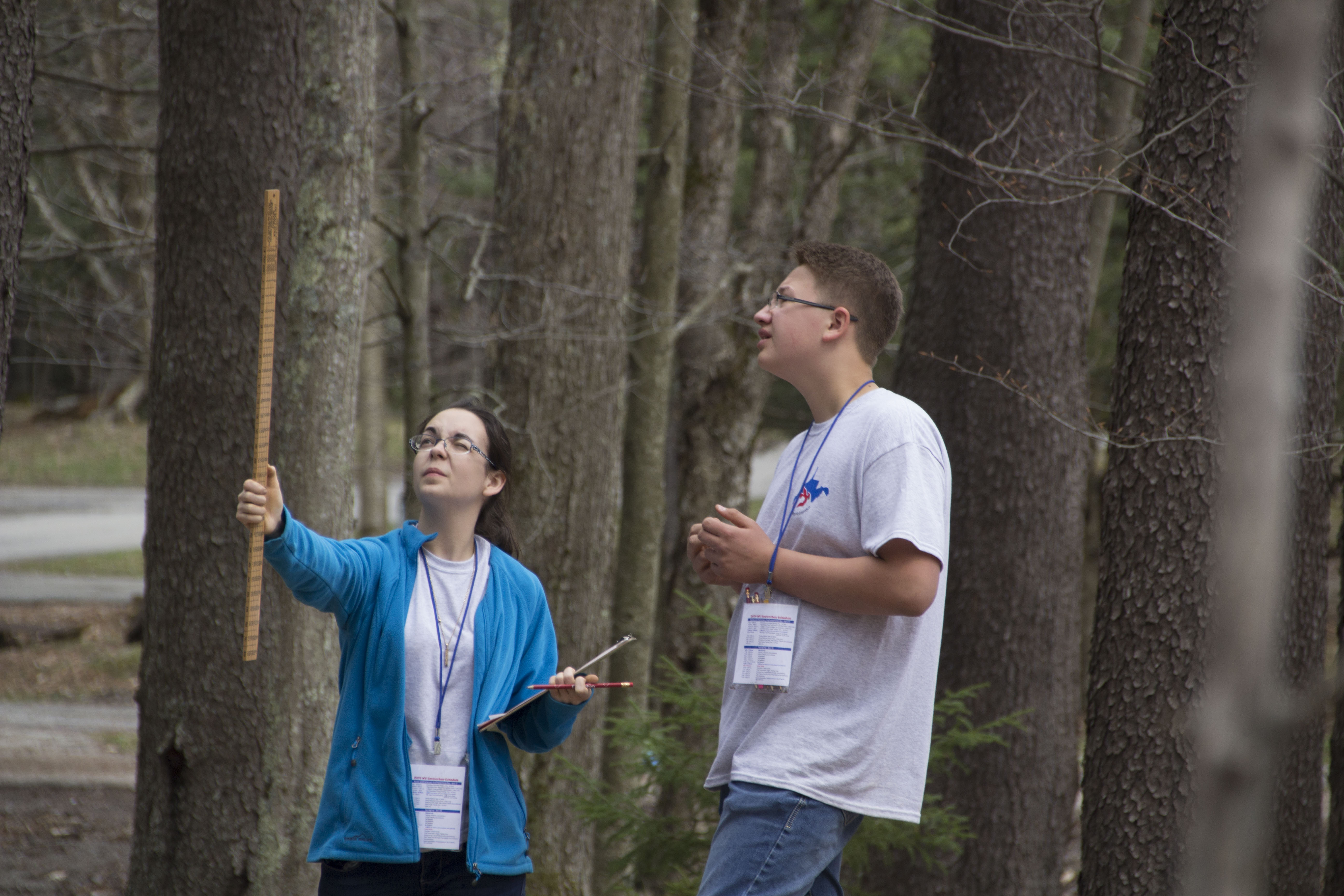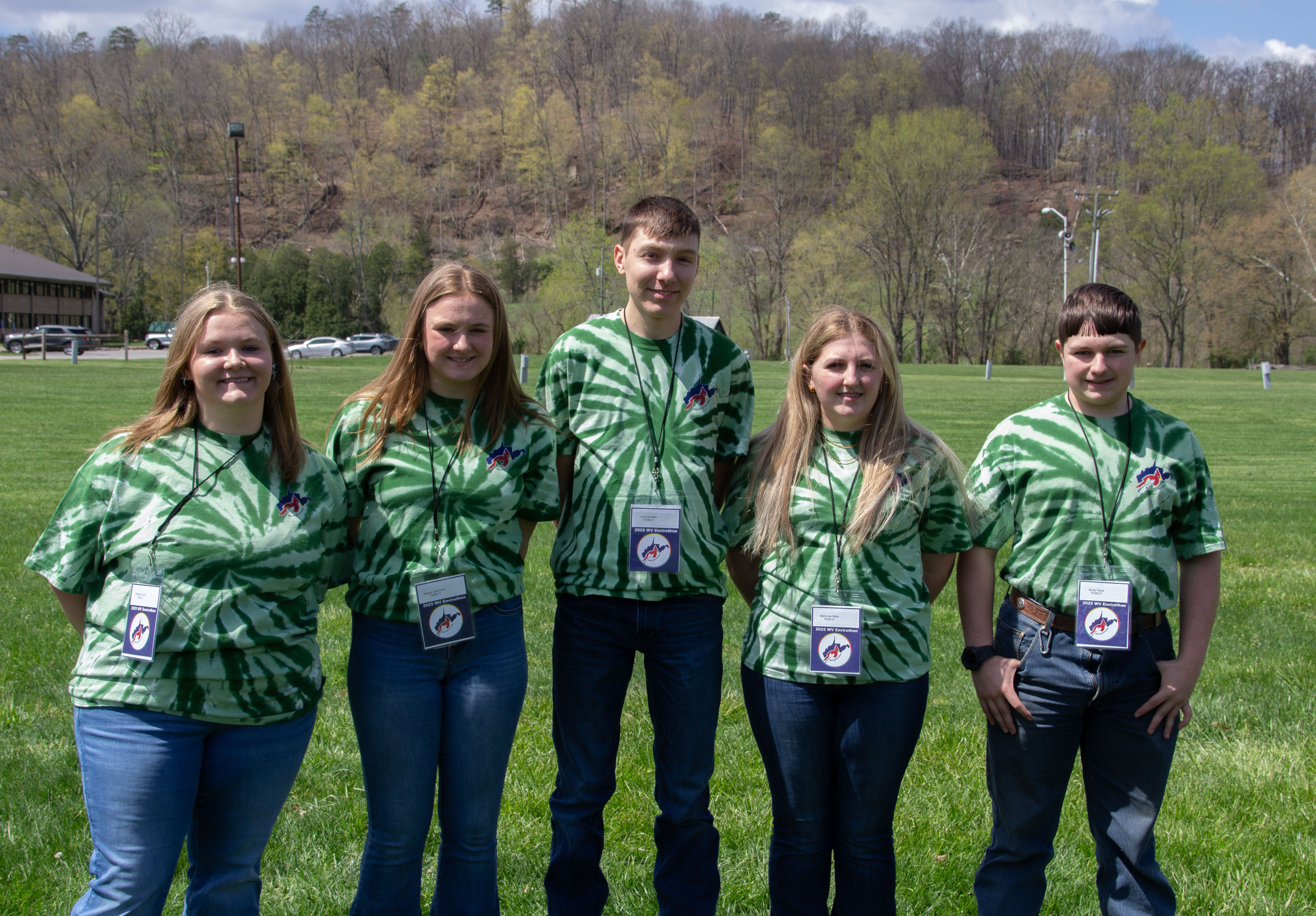Envirothon: A Lasting Impact
(Editor's note: A version of this article appeared in the June edition of the Market Bulletin.)
By Davin White
WVCA Communications Specialist
Katlyne Rollyson’s participation in the West Virginia Envirothon in high school was one of the main reasons she pursued her bachelor’s degree in natural resources management at Glenville State University. Her degree led to her current position, which she’s held over the past three years, as a forest health protection specialist with the West Virginia Department of Agriculture. Rollyson’s involvement in the competition helped her discover a passion for plants, insects, and all that falls under the natural resources umbrella.
Rollyson’s Ravenswood FFA team won the WV Envirothon competition in 2018. Later that year, the team took first place in the “Current Environmental Issue” topic at the national NCF-Envirothon in Idaho, competing against teams from across the nation and some foreign countries. That was the rangeland portion of the national competition, and Rollyson said she and her teammates had brought some relevant experience in grasslands. She credits her participation more than her successes in those contests with stoking her interest in the field.
“So, even if I hadn't had as many successes as I did in high school, I still think that just participating was the best stepping-stone to a very fulfilled career path,” she said.
Having opportunities in high school to participate in contests like Envirothon helped Rollyson find her niche.
“Going into college, I had a lot of knowledge from these contests that I wouldn't have had otherwise, which really helped me in many of my classes,” she said. “But I also learned so much in college that the interest that I had in natural resources only became greater, building on what I had discovered in high school through Envirothon.”
Her experience aligns with some other students’ Envirothon experiences, who have gone on to work for state and federal agencies, operate farms in West Virginia, or pursue careers in agriculture, forestry, conservation, and the environmental sciences.
Rollyson has given back, and in the past two years she’s volunteered with the West Virginia Envirothon Committee. This spring, during the competition at Cedar Lakes Conference Center, she was a “team buddy” who helped guide a group of students from one station to the next during testing day on April 17.
She’s enjoyed getting to work with the students.
“Hopefully we see them in more natural resources fields moving forward,” she said.
Jason Dalrymple participated in the first three West Virginia Envirothon competitions, from 1997 through 1999.
His St. Marys High School team won the event in ’97 and ’99, led by advisor Jason Hughes. Dalrymple also was heavily involved in FFA in high school and became a state officer. In college, he wanted to study both agriculture and the environmental sciences, and during those years, he was able to intern with the USDA-NRCS.
He earned his bachelor’s degree in agriculture from West Virginia University and started with Pilgrim’s Pride in Moorefield as a nutrient management technician after graduation, working with poultry producers on their nutrient management plans.
That led to his current position with the West Virginia Department of Agriculture, also based in Moorefield, where he now supervises other nutrient management plan writers and is a certified crop advisor. Dalrymple said connections made through the Envirothon were a tremendous help in getting him the position he has today.
His eldest daughter, Daisy, also has competed in the Envirothon in recent years, and has completed her associate’s degree at Potomac State College. She’s headed to WVU this fall, pursuing a career in agricultural education.
Like Rollyson, Jason’s involvement in the Envirothon continues. He was an advisor for this year’s Hampshire FFA team, which finished in 11th place and had one of the top four Wildlife Station scores.
West Virginia Envirothon Committee Chairman Wayne McKeever said that Rollyson and Dalrymple represent full-circle experiences with the Envirothon. They enjoyed it as students and want to continue to be involved with it.
McKeever notes some past participants go on to pursue related fields while others do not, but Envirothon competitors take that knowledge with them.
“I think it will always be a part of them, no matter what they do,” he says.
Heather Duncan, secretary of the West Virginia Envirothon Committee and executive director for the West Virginia Association of Conservation Districts, also competed in the Envirothon as a student at Jefferson High School about 20 years ago.
Duncan drew inspiration from neighbor and family friend Robert E. Putz, a longtime U.S. Fish and Wildlife Service scientist and administrator who established The Freshwater Institute and whose work took him from Alaska to the halls of Washington, D.C.
Her interest in fisheries and aquatics grew, and preparing for Envirothon and experiencing the competition itself was one of her first real exposures to forestry.
The real-world, hands-on experience students gain through Envirothon is at an advanced level, which is evidenced by the expertise needed just to organize trainings for students and advisors ahead of the competition each April, Duncan said. Not everybody can teach what the students need to learn, and the trainers must be experts in the Envirothon’s focus areas of soils, forestry, aquatics, and wildlife.
“You’re almost getting on-the-job training for these [future] positions in high school,” Duncan said, “because they are career development.”
(Images Below: LEFT: Katlyne Rollyson (left) and teammate Andrew Francis studying forestry during the 2019 West Virginia Envirothon. RIGHT: The Hampshire County team that Jason Dalrymple advised competed in the 2025 WV Envirothon at Cedar Lakes Conference Center.)

